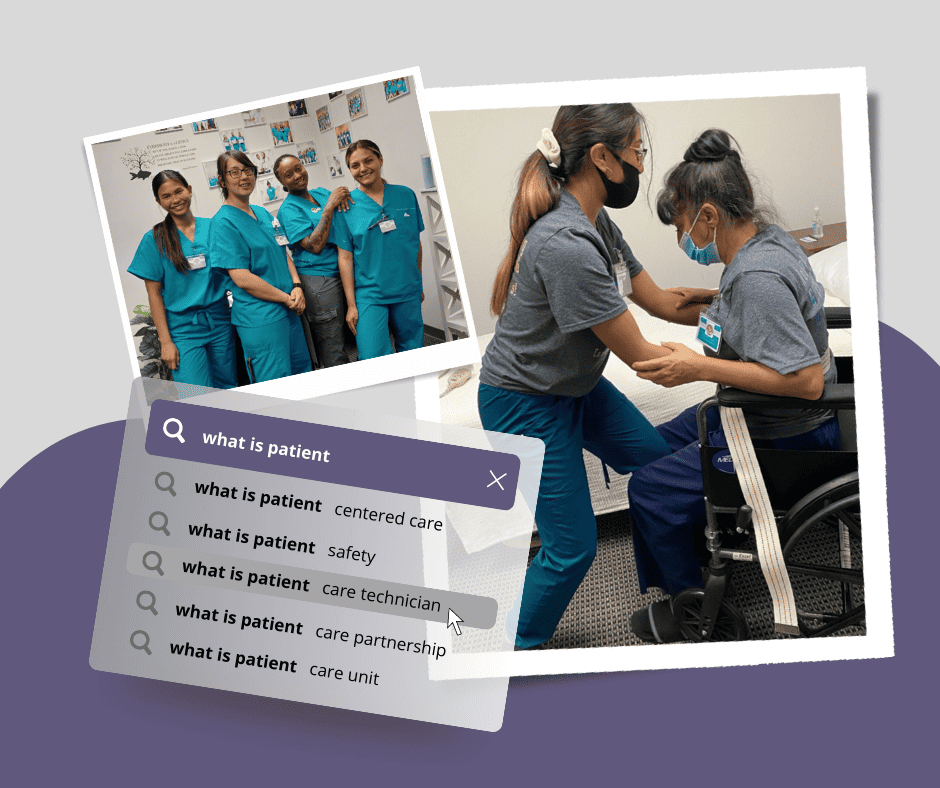What Is a Patient Care Technician? (2024)

Passionate about helping others? Consider a career as a patient care technician (PCT)! Becoming a PCT is a great opportunity to help others and to get your foot in the door if you are considering a career in nursing. In this blog, we'll talk about what is a PCT, what they do, how to become one, their certification, salary, and job opportunities.
Key Points
-
A Patient Care Technician, or PCT, is a healthcare professional who provides direct care to patients such as monitoring vital signs, assisting with medical procedures, and ensuring patient comfort in various medical settings.
-
Aspiring PCTs typically need to complete a post-secondary educational program, often offered by community colleges or vocational schools. This is followed by obtaining certification from a recognized healthcare organization.
-
PCT training programs in the USA can vary in length, but most can be completed within a year.
-
According to the U.S. Bureau of Labor Statistics, the average salary for a Patient Care Technician in the USA is around $30,000 per year, with the potential for growth with experience and additional qualifications.
What comes after PCT?
But what about career advancement opportunities? The good news is that you can have many opportunities for career advancement and specialization as a PCT. You can pursue careers as a registered nurse, medical assistant, or other healthcare professional with additional education and training. Here's a list of some of the specializations that you can pursue as a PCT:
-
Phlebotomy Technician: Collects and prepares blood and other specimens for testing.
-
Electrocardiograph (EKG) Technician: Performs EKG readings to help diagnose and treat heart conditions.
-
Hemodialysis Technician: Operates equipment to perform hemodialysis treatments for patients with kidney failure.
-
Certified Medication Technician (CMT): Administers medications under the supervision of a licensed nurse.
-
Patient Care Associate (PCA): Focuses on patient comfort and companionship more than CNAs or PCTs; usually, homecare assistants help with basic tasks like cleaning, cooking, and laundry for people who need assistance or are homebound.
It's important to note that the specific job duties and requirements for each of these specializations may vary depending on the employer and state regulations. Additionally, some specializations may require additional education and training beyond the conditions to become a PCT.
Frequently Asked Questions
What is the highest patient care technician salary?
The highest patient care technician salary varies depending on the location and level of experience but as of 2023, the top 10% of CNAs, which may include patient care technicians, earn over $48,780 annually in the United States.
What are the administrative duties a patient care technician might perform?
Patient care technicians may perform a variety of administrative duties such as scheduling patient appointments, updating medical records, preparing patients for procedures, and coordinating with other healthcare professionals.
What state pays the most for Patient Care Technician?
As of 2023 based on the U.S. BLS, the state that pays the most for CNAs which may include Patient Care Technicians is the District of Columbia, with an average annual salary of approximately $47,860. Other high-paying states include Alaska, California, Oregon, and Washington.
Final Thoughts
Becoming a PCT can be a fulfilling and rewarding career if you are passionate about providing hands-on patient care. With the proper education, training, and skills, you can make a meaningful difference in the lives of patients and their families. If you're interested in pursuing a career as a PCT, research your area's specific requirements and opportunities. Start achieving your career goals with Dreambound!
Contemplating whether Dreambound is the right fit for your goals? Gain insight from students who have seen remarkable results with their assistance:
- "Great communication and thorough explanations with all the details provided." — Diana Vidal
- "Dreambound is an easy-to-use and professional platform. It helps you reach your goals and make your dreams a reality. Dreambound provides the tools and guidance you need to succeed." — Samantha Williams
- "It’s truly amazing! Life-changing, actually. I’m so grateful to Dreambound for helping me start my career journey. I highly recommend it to anyone looking to further their career path!!! Thank you, Dreambound!" — Candise Williams
For more valuable information about being a PCT, check out the links below:

Fel is a student support representative who guides enrollees to the right program and answers their queries. She's committed to helping students and takes pride in her work. In her free time, she enjoys sightseeing and hanging out with loved ones.



